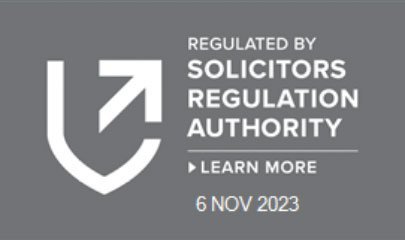Lack of Mental Capacity
When you give instructions and then execute your Will, you will need to know what you are doing and understand the full implications of your actions.
In legal terms this broadly means you, the Testator (person making the Will), will need to:
- Understand that you are making a Will and how a Will works
- Understand what assets and liabilities you have and what you are gifting in your Will
- Appreciate how others will be affected by the contents of your Will and that you will be expected to make provisions for certain people
- Not have a disorder that affects your mind causing you to dispose of your assets in a manner that you would not otherwise do so
Mental Capacity is a complex area as it is possible for you to have capacity for certain matters and not for others, for example if you have periods of lucidity making it difficult to know when it is the right time to take instructions or execute your Will. Sometimes, the issue of capacity may not be obvious and that can make the job of the Will writer very difficult.
It is these complexities that often lead to questions being raised after the Testator dies. If a serious question of capacity is raised, it will be for those beneficiaries wanting to rely on the Will to prove that you did not lack mental capacity when you executed your Will.
How can I Protect my Will from Challenges for Lack of Mental Capacity?
An important step is to use a professional Will writer. A good practitioner will always ask appropriate questions during the initial meeting to establish whether there may be any concerns about your mental capacity.
If there are concerns, they will follow the ‘Golden Rule’ and an appropriate medical practitioner will be asked to assess you and determine whether you are able to execute a Will. The medical practitioner will be encouraged to act as a witness when the Will is signed, but this is not always possible.
If you anticipate a dispute then it is a good idea to speak to a medical practitioner anyway and have the discussion recorded in medical logs or reports, which can be used as evidence by your intended beneficiaries if necessary. It is worth noting that records detailing your health at the time the Will is executed will always be useful evidence, even if mental capacity is not considered to be an issue at that time.
We recommend that you regularly review your Will with your practitioner to demonstrate that you have not changed your mind during the passage of time. If there are significant changes to a Will, then there should be a detailed discussion as to why those changes are being made and this discussion should be noted on the practitioner’s file.
If you feel comfortable in doing so, you should also have open and frank discussions about your wishes and the contents of your Will with beneficiaries, friends and family. If they are aware that your wishes have been consistent or understand the reasons for any changes it can reduce the likelihood of challenges.
Undue Influence
A Will is a record of your, the Testator’s, wishes of how you want your estate distributed after your death. It is for you to make those choices and no one else. If anyone else makes or influences those choices the Will cannot be valid. The most obvious example of undue influence is when someone forces you to leave assets in a specified manner for fear for repercussions, such as being told you will not be looked after properly, threats of abuse, threats of being disowned and so on. This can be especially terrifying for the elderly and vulnerable.
The examples above are transparent but undue Influence is not always this obvious, another example would be causing you to have untrue beliefs about a proposed beneficiary. A recent matter that we assisted on involved of a father who was made to believe that one of his sons was not taking care of him properly, which led him to exclude the son from his Will. This kind of undue influence is known as fraudulent calumny.
How can I Protect my Will from Challenges of Undue Influence?
A good practitioner will always ask to see you on your own so that you are free to speak openly without reprisal.
They will also have discussions with you to ensure that any changes to your Will are rational and properly considered and that you fully understand the implications. If there are any concerns a practitioner will refuse to act and may even report their suspicions to the appropriate authorities.
Unfortunately, undue influence can be hard to notice so you should be open and frank with your practitioner, who will note the conversation in their records. If it is feasible, a discussion with any family about your wishes is also encouraged. Not only will this show there is no undue influence, it may also prevent any disputes or animosity after your Will is read.
Challenging Wills made during the Pandemic
The COVID-19 pandemic has caused many people to think about the importance of Wills. At the start of lockdown there was a 70% surge in Will instructions. However, the need for social distancing has meant that taking instructions and executing Wills has been problematic for some. Video or telephone calls with a practitioner may get the job done, but it does make it harder to identify issues and this could lead to problems when your Will has to be used.
If you have executed your Will during this pandemic period and have any concerns about future challenges, we recommend that you get your will reviewed once you are able to meet with a practitioner in person.
LEGAL ADVICE
At Allard Bailey Family Law we regularly assist in drafting Wills where there are complex or sensitive wishes and can help you to protect your intended beneficiaries from unwarranted challenges, as well as defending them should disputes occur.
To book a consultation or telephone appointment, please contact Sangeeta Rabadia on 020 7993 2936.































































